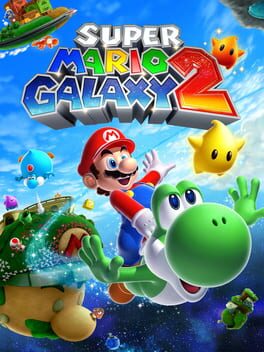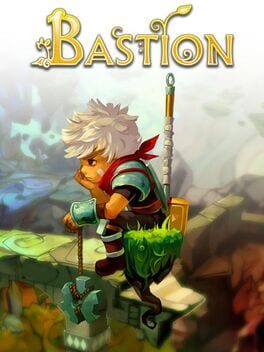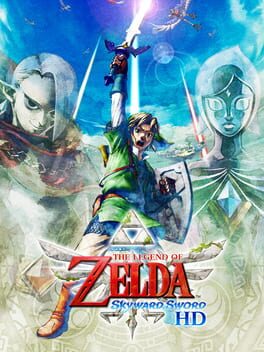bugtechno
2024
Something to be said about how the most sophisticated schools of design in any medium are the ones that encourage maximum consumption (see also: the blockbuster, serialized comics / soaps, and cultural/authorial anonymity through “pop”) but that doesn’t actually change that this is a brilliantly evil game about your most addictive impulses as a player. After ante 8 every Balatro run ends the same way, so it becomes a quest for numbers in themselves, joy through getting one over on The Man while always operating within the easy, intuitive iconography of poker (even though this game has nothing to do with asymmetrical information or even really card counting). It’s more about like.. being ready to change plans at the drop of a hat, to identify and exploit asymmetries between the two verbs of gameplay, all while on top of the runaway train that is your already-built deck. I would imagine a fuckton of players ran flush decks on their first run and were stopped dead by a boss blind that nulls whichever suit you have most of, for example, and early losses like these are what teach you how important it is to hedge bets. I personally really liked this aspect! - too many roguelikes become bound by the strength of their synergies, but in Balatro it’s less about having one goated hand you’re always hunting than maintaining a calculated redundancy while still keeping up with the power creep. It’s that aspect that separates it from the many other games I’ve played, and what I think makes it more worthwhile than a slot machine or whatever. Like there are situations you can get into that feel absolutely hopeless, where you know the run is lost with like three hands to be played, and that absolute commitment to letting you reap what you sow is so refreshing. Every time you start a run it’s very bluntly asking you, how do you want to wipe out this time? And every time you choose your deck and ante up and go, "nah i’d win", and lose.
At a systems level Strive is like the least interesting anime fighter playable today, but Testament is still so elegantly designed. Everything just kinda flows in the power fantasy zoners are designed to provide without ever relying too heavily on metagame outplays over mechanical expressivity (see: Guile). I think part of the reason they work so well without feeling frustrating to play against is that stain, your reward for playing midrange keep-away, is just a combo extension tool--not only does it require you to win neutral to capitalize on your advantage, it specifically emphasizes creativity in your combo routing in a way the rest of the game does not at all. Combine that with fun, unique oki that often feeds right back into stain, normal hitboxes bigger than god, and a fullscreen 50/50 mixup that i always feel slightly guilty for hitting online? If teleport was cooler this would be like a perfect character.
2019
Played ten hours and got the idea, then played twenty more out of inertia. It's shocking to me just how shallow the themes are here for a hundred-hour game, and how poorly the core overlapping mechanics of the social sim and dungeon-crawling halves of the game loop are used to explore ideas of abuse of power, personal redemption, social marginalization, etc. Don't get me wrong--both the school parts and the palace parts are really effective explorations of min-maxing limited resources in their own way (although the rewards for progressing social links honestly kind of suck--all the stories are super vapid and the characters remain one-note throughout) but that compulsion to extract value from the game as efficiently as possible is never tied directly to the abuses of power rampant throughout the plot. The coding of each palace after a deadly sin, the allusions to historical thieves and rebels, all of these things are cool, but there's zero substance to any of it. People with power are propped up by societal institutions and never face repercussions for their crimes against vulnerable people? Even the worst people can be redeemed through penitence and ego death? You're telling me this for the first time. The many variations on a theme do nothing to deepen the player’s understanding of how or why society is structured, or justify the gameplay literally at all. It’s like if psychoanalysis was stupid. Oh wait–
And don't even get me started on the pedophile route.
And don't even get me started on the pedophile route.
2010
2011
This review contains spoilers
Fundamentally a proof of concept in how it introduces the two halves of a thematic underpinning behind every Supergiant game aka the very classical marriage of melodrama and ideology, with the conflict between the two providing the driving force behind the game logic itself. Bastion is literally shaped by its framing narrative in the terrain and player choices (it’s significant that Zia isn't heard until the final moments, and Zulf never) and this sets up that tension between directed/immanent action, in that you are playing a game with set goals and levels while also unavoidably in history, with your actions mythologized in real-time and presented as inevitable even as the game is so nakedly arbitrary in its construction. "Coming Home" is the bad end because it is unsatisfying on both of those levels, and the ability one has to choose it is more a statement about the difficulty in revolt, and in saying to a game no this is what I want from this experience, Rucks is wrong, sometimes projects need to be abandoned. And of course the fact that an alternative is already accommodated in the system (as opposed to just like, turning the game off, for example) is telling as to Supergiant's thoughts on the work, and their artistic need to move on to better and brighter things. Of course they would revisit all these threads later in their career, massively abstracting the "constructed world" concept in Transistor and focusing on either melodrama or ideology in Hades and Pyre respectively, but in creating a crude thought experiment that accomodates both bending to a system and breaking it’s obvious that their creative capabilities at this time were vulnerable--can't imagine they didn't make a similar choice themselves as struggling no-name game devs. Anyway, I'm glad this past decade went as well for them as it did, the game is pretty good, but it doesn't compare to how staggering of an artistic statement Transistor and Pyre are, or even to Hades's slick finish. Its strengths lie more in how literal of a debut it is, and how much it yearns for those accomplishments yet to come.
Living within and growing into an intricate web of prophecy recontextualized as the player existing within a world that’s more obviously clockwork than ever, navigating disparate and reoccurring skills and areas as your skill with them mirrors Link’s maturation into his role as the Chosen One. The reason the backtracking is almost never tedious to me is that the later iterations (silent realms, flooded Faron, timeshift stones on a moment-to-moment level) reward not just awareness but total mastery of shortcuts as well as your whole toolkit. It’s less impressionist in 1080p but no less beautiful, and the industrial elements clash vibrantly against the naturalistic ones in ways that effortlessly sell Skyward Sword’s dual role as a series prequel and a culmination of the Zelda identity. This game is world as dungeon as you navigate mechanics and mythologies and in that it almost plays as a companion to Breath of the Wild; where that game's designers show their hand only at the macroscopic seams of the world, this one's do so almost immediately and shove the granularity of the construction into your face for nearly the whole thirty hours (Skyloft is the major concession to Zelda formula, as are the Divine Beasts, conversely, in BOTW). So it's magical at times and numbing at others, but very accessible now and too good to write off anymore.






